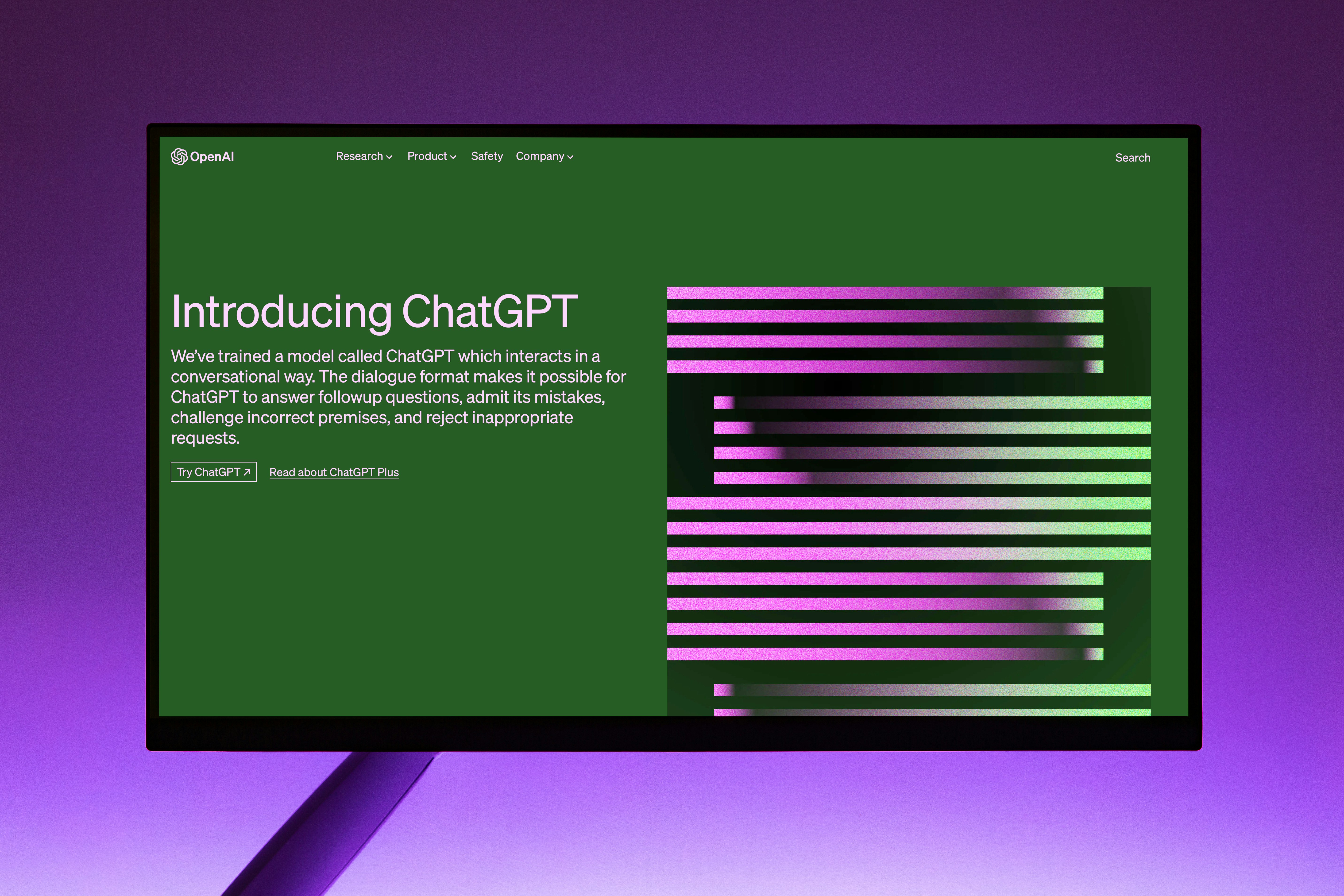
How to Hire Top Edge Computing Talent in the UK: A Comprehensive Guide for Recruiters
Edge computing is revolutionising how data is processed, analysed, and acted upon—shifting workloads and intelligence from central data centres to the network’s periphery. From reducing latency in IoT systems to enabling real-time analytics in factories, edge computing unlocks new possibilities for businesses across industries. As adoption surges in the UK, demand for skilled edge computing professionals has soared, making recruitment a competitive challenge.
In this guide, we’ll delve into the factors driving edge computing’s rapid growth, identify the key roles and skill sets you’ll need on your team, and outline best practices for sourcing, hiring, and retaining top talent. We’ll also introduce you to www.edgecomputingjobs.co.uk, a specialised platform designed to connect employers with edge computing professionals in the UK.
Table of Contents
Why Demand for Edge Computing Talent Is Rising
Key Roles in Edge Computing
Essential Skills and Qualifications
Challenges in Recruiting Edge Professionals
Best Practices for Hiring Edge Specialists
Leveraging www.edgecomputingjobs.co.uk
6.1 Targeted Edge Talent Pool
6.2 SEO-Optimised Listings
6.3 Employer Branding
6.4 Advanced Filtering & Analytics
6.5 Dedicated Support
Cultivating an Attractive Edge Employer Brand
Retention Strategies for Edge Talent
Industry Sectors Embracing Edge Computing
Future Trends in Edge Computing Recruitment
Frequently Asked Questions (FAQs)
Conclusion and Next Steps
1. Why Demand for Edge Computing Talent Is Rising
1.1 Explosion of IoT Devices
Internet of Things (IoT) deployments—from wearables and home appliances to industrial sensors—have skyrocketed. As these devices generate vast data streams, processing them locally at the edge reduces latency and network strain. This shift calls for engineers and architects who can design, integrate, and maintain robust edge infrastructures.
1.2 Real-Time Analytics and Decision-Making
In sectors like manufacturing and autonomous vehicles, decisions must be made in milliseconds. Edge computing allows data processing near the source, enabling faster analytics and on-the-spot insights. As companies adopt these architectures, specialists adept in edge frameworks and protocols are in high demand.
1.3 5G Rollout and Network Advancements
Next-generation connectivity (5G) promises ultra-low latency and greater bandwidth—vital for real-time edge computing scenarios. Telecom providers, in particular, need professionals skilled in MEC (Multi-access Edge Computing) and distributed network architectures.
1.4 Privacy and Data Governance
Processing data locally can help organisations comply with GDPR and other data protection regulations by minimising the transfer of sensitive data to central clouds. Engineers with a strong grasp of security and compliance at the edge are critical.
1.5 Hybrid and Multi-Cloud Strategies
Many companies combine on-prem, cloud, and edge nodes into one environment. Orchestrating workloads across these distributed layers requires specialists knowledgeable in containerisation, orchestration, and software-defined edge solutions.
2. Key Roles in Edge Computing
Edge computing spans hardware, networking, and software disciplines. Below are some of the most sought-after roles:
Edge Platform Engineer
Develops and maintains edge nodes or micro data centres.
Skilled in containerisation (Docker, Kubernetes), embedded systems, and network management.
Edge Solution Architect
Designs end-to-end edge architectures, balancing local processing with cloud components.
Understands integration of IoT devices, real-time data pipelines, and security requirements.
IoT Edge Developer
Focuses on implementing applications and analytics at the device or gateway level.
Proficient in programming for resource-constrained environments (C/C++, Python) and IoT frameworks (AWS IoT Greengrass, Azure IoT Edge).
Edge AI Engineer
Deploys machine learning or AI models on edge devices, using optimised libraries (e.g., TensorFlow Lite, ONNX Runtime).
Knowledge of hardware accelerators, quantisation, or FPGA-based inference.
Edge Security Specialist
Ensures encryption, access control, and threat detection at distributed endpoints.
Familiar with zero-trust architectures, hardware-based security modules, and compliance frameworks.
Network Edge Specialist
Designs edge network topologies, leveraging SD-WAN, 5G MEC, or private LTE solutions.
Deals with low-latency transport, local breakout, and edge caching.
Industrial Automation & Edge Engineer
Bridges OT (operational technology) and IT for real-time control in factories or energy grids.
Works with SCADA systems, PLCs, and local data processing for immediate feedback loops.
Edge Infrastructure Ops / DevOps
Orchestrates updates, monitoring, and maintenance of multiple distributed edge nodes.
Skilled in CI/CD for edge deployments, remote debugging, and scaling ephemeral edge workloads.
3. Essential Skills and Qualifications
3.1 Technical Expertise
Programming & Scripting: Proficiency in Python, C++, or Go to develop edge applications.
Networking Foundations: Understanding VLANs, routing, 5G, and network slicing for advanced edge use cases.
Containers & Orchestration: Familiarity with Kubernetes or K3s for lightweight clusters, microservices packaging.
Cloud & DevOps: Experience with AWS, Azure, or GCP, plus automation tools (Terraform, Ansible) for hybrid or multi-cloud edge deployments.
3.2 Edge-Specific Platforms & Frameworks
IoT Edge Services: AWS IoT Greengrass, Azure IoT Edge, Google Anthos.
Real-Time OS / Embedded: FreeRTOS, Zephyr, or embedded Linux distributions for device-level processing.
Edge AI Stacks: NVIDIA Jetson platform, Intel OpenVINO for hardware-accelerated inference.
3.3 Soft Skills
Collaboration: Edge projects often involve OT teams, software engineers, network specialists, and data scientists.
Problem-Solving: Diagnosing issues in distributed environments with minimal direct access is a tricky puzzle.
Adaptability: Edge technology evolves swiftly; continuous learning is essential.
Communication: Explaining complex architectures to stakeholders in logistics, manufacturing, or other verticals.
4. Challenges in Recruiting Edge Professionals
4.1 Cross-Disciplinary Expertise
Edge computing demands a convergence of networking, embedded systems, cloud dev, and AI. Finding candidates with this broad skill set is inherently difficult.
4.2 Rapid Technology Changes
New frameworks and hardware solutions appear frequently. Even established stacks (like Azure IoT Edge) evolve, meaning skill sets can quickly become outdated. Recruiters must assess candidates’ willingness to keep learning.
4.3 Competitive Salaries
The specialised nature of edge roles can command higher compensation, especially for senior positions. Organisations must balance budgets with the risk of failing to fill crucial roles.
4.4 On-Site vs. Remote Requirements
Some edge jobs involve physical device configuration, traveling to remote industrial sites, or labs. If your company relies heavily on remote or hybrid setups, clarifying these demands is vital.
4.5 Geographical Disparities
Edge R&D clusters often form around major cities or near advanced manufacturing hubs. Recruiters outside these areas may struggle to lure talent without offering flexible schedules or relocation support.
5. Best Practices for Hiring Edge Specialists
5.1 Define Specific Job Scopes
Project Stage: Is it early proof-of-concept, pilot, or production-scale deployment?
Primary Focus: AI at the edge, IoT device integration, or network engineering? Clear scope helps attract the right skill sets.
5.2 Practical Assessments
Technical Exercises: Ask candidates to design or troubleshoot a hypothetical edge node handling real-time sensor data, evaluating trade-offs in bandwidth, storage, or latency.
Scenario-Based Interviews: Explore how they’d approach security patching on hundreds of remote edge devices or handle hardware resource constraints.
5.3 Offer Competitive Compensation & Perks
Competitive Salaries: Benchmark against roles in cloud computing, AI, or IoT, acknowledging the overlap in skill sets.
Career Growth: Outline potential paths—e.g., from Edge DevOps Engineer to Edge Infrastructure Lead or from Edge AI Engineer to Tech Architect.
5.4 Emphasise Real-World Impact
Candidates often want to know why edge computing matters in your context: preventing downtime on assembly lines, enabling near-instant data analysis for public safety, etc. Highlight these impactful use cases.
5.5 Streamline Hiring
Skilled edge experts may juggle multiple offers. A swift process—with limited interview rounds and prompt feedback—can be decisive. If possible, set up short “trial” or pilot projects to verify fit.
6. Leveraging www.edgecomputingjobs.co.uk
6.1 Targeted Edge Talent Pool
By posting vacancies on www.edgecomputingjobs.co.uk, you gain access to a specialised network of edge developers, architects, and engineers actively seeking roles in the UK. This reduces irrelevant applications from broader, non-targeted boards.
6.2 SEO-Optimised Listings
Our platform is built on SEO best practices, ensuring your job ads rank for searches like “edge computing engineer UK,” “IoT edge developer,” or “MEC specialist.” This boosts visibility among the right audience.
6.3 Employer Branding
Use your listing to showcase mission statements, innovative projects, and your approach to edge-focused R&D. Candidates are drawn to workplaces pushing technological boundaries in real-time data processing and distributed intelligence.
6.4 Advanced Filtering & Analytics
Filter candidates by skill sets (Docker, Kubernetes on edge, AI frameworks, 5G MEC), years of experience, and more. Track performance metrics like views, applications, and conversion rates to refine your recruitment strategy.
6.5 Dedicated Support
Our support team understands the intricacies of edge computing—from IoT device constraints to multi-cloud orchestration. We can guide you in crafting job descriptions, screening candidates, and optimising postings for maximum impact.
7. Cultivating an Attractive Edge Employer Brand
7.1 Highlight Cutting-Edge Tech
Emphasise advanced frameworks, hardware accelerators, or domain-specific solutions (industrial edge, 5G integrations). Tech-savvy candidates often favour roles that let them experiment with emerging solutions.
7.2 Showcase Real Deployments
If you’ve successfully deployed edge solutions—like AI-based anomaly detection in factories or edge analytics for smart cities—talk about those achievements. Concrete examples of field impact resonate strongly with top talent.
7.3 Encourage Continuous Learning
Fund courses, sponsor certifications (e.g., AWS/Azure IoT specialisations), or host internal hackathons. Engineers value workplaces that invest in upskilling and staying current on cutting-edge frameworks.
7.4 Embrace Collaboration
Edge computing solutions typically involve cross-functional teams—sensor specialists, data scientists, DevOps, and more. Demonstrate a culture that fosters open communication and knowledge sharing.
8. Retention Strategies for Edge Talent
8.1 Engaging Projects
Rotate skilled engineers across diverse edge scenarios—like industrial IoT deployment one quarter, 5G MEC and containerised workloads the next. Variety combats stagnation and hones adaptability.
8.2 Recognition and Rewards
Celebrate milestones—like achieving sub-10ms latency or implementing a large-scale edge rollout. Public acknowledgements or bonuses tied to key KPIs affirm that the organisation values their achievements.
8.3 Flexible Work Models
While some aspects (hardware integration, lab testing) require in-person tasks, consider remote or hybrid setups for planning, software dev, or data analysis. Balancing onsite and offsite can enhance satisfaction.
8.4 Clear Growth Path
Offer opportunities to progress from Edge Developer to Senior Engineer or from Edge Systems Engineer to Tech Lead. Regular career conversations help employees visualise a future at your company.
9. Industry Sectors Embracing Edge Computing
Manufacturing & Industrial IoT
Real-time process control, predictive maintenance, and smart assembly lines.
Minimises downtime and increases output quality.
Automotive & Mobility
Autonomous vehicles reliant on on-board processing for sensor fusion and decision-making.
5G-based edge computing for traffic management and V2X communications.
Healthcare
Telemedicine devices and hospital equipment requiring local data analysis to protect patient privacy and reduce network load.
AI-based diagnostics at the edge for faster triage.
Retail & E-commerce
Local inventory tracking and immediate data analytics in stores or distribution centres.
Personalised offers and faster checkouts thanks to on-site edge servers.
Energy & Utilities
Monitoring smart grids, controlling wind farms or solar installations in real time.
Edge nodes stabilise networks by reacting swiftly to fluctuations.
Telecommunications
Deploying multi-access edge computing (MEC) solutions at base stations for content caching, AR/VR streaming, or low-latency apps.
Major synergy with 5G expansions.
10. Future Trends in Edge Computing Recruitment
10.1 AI-Driven Edge
Edge AI frameworks for computer vision, natural language processing, and advanced analytics will surge. Roles merging machine learning with real-time embedded systems will multiply.
10.2 Serverless Edge Architectures
As serverless paradigms migrate to the edge, roles requiring function orchestration, ephemeral container management, and event-driven designs will be in demand.
10.3 Zero-Trust and Edge Security
Security at the edge demands zero-trust models, micro-segmentation, and hardware-based encryption. Specialists adept in confidential computing and secure enclaves will be key.
10.4 Edge-Cloud Continuum
The boundary between local processing and central cloud continues to blur. Hybrid orchestration roles bridging Kubernetes at the edge with large-scale cloud backends will expand.
10.5 Environmentally Conscious Edge
Sustainability goals will shape the design of low-power edge devices and energy-efficient micro data centres. Recruiters may seek candidates specialising in green computing or carbon footprint optimisation.
11. Frequently Asked Questions (FAQs)
Q1: What salary range do edge computing engineers command in the UK?
Entry- to mid-level roles might range £40,000–£60,000. More advanced specialists (e.g., AI at the edge, 5G MEC architects) can earn £65,000–£90,000 or higher, depending on industry and location.
Q2: Which programming languages are most common for edge computing?
C++, Python, and Go often appear, especially for IoT device software or microservices. Rust might also be relevant in performance-critical or security-focused edge scenarios.
Q3: How can we verify a candidate’s experience with distributed systems?
Look for track records of building or managing microservices, orchestrating container-based clusters, or deploying real-time analytics solutions. Request references or code samples demonstrating concurrency, fault tolerance, and resource constraints.
Q4: Do we need candidates with advanced degrees (Master’s/PhD)?
While advanced degrees can help in R&D roles (particularly with AI or embedded systems), practical experience in real deployments is often equally—if not more—valuable.
Q5: Should we focus on 5G knowledge for edge positions?
For telecom or large-scale IoT solutions, yes. If you’re building consumer or enterprise IoT solutions requiring ultra-low latency, 5G expertise is crucial. Otherwise, general networking and Wi-Fi/Ethernet knowledge might suffice.
Q6: Is remote work feasible for edge roles that involve hardware?
A hybrid approach may be ideal. Initial lab setup, device integration, or on-site proof-of-concept testing might require physical presence, but ongoing software dev or monitoring can often be done remotely.
12. Conclusion and Next Steps
As edge computing catalyses new business models and fuels real-time data processing, recruiters face a unique challenge: securing cross-disciplinary talent who can master connectivity, embedded software, cloud integration, and beyond. By defining precise job requirements, offering competitive packages, and highlighting the tangible impact of edge initiatives, you’ll attract the right professionals to steer your projects.
How www.edgecomputingjobs.co.uk Can Help
Post Your Vacancies: www.edgecomputingjobs.co.uk targets edge computing specialists in the UK, significantly boosting your reach among ideal candidates.
SEO-Enhanced Listings: We ensure your adverts rank for relevant keywords like “edge engineer,” “IoT edge developer,” or “MEC solutions architect.”
Employer Brand Building: Present your company’s edge innovations, highlight collaborative culture, and draw in tech-savvy applicants eager to shape next-gen infrastructure.
Expert Assistance: Our dedicated support team can help you craft enticing job descriptions, filter applicants effectively, and navigate the competitive edge computing talent market.
Ready to find the specialists who’ll power your edge computing journey? Visit www.edgecomputingjobs.co.uk and connect with a thriving community of professionals passionate about building the future at the network’s edge.
Implement these strategies and leverage www.edgecomputingjobs.co.uk to stand out in the edge computing recruitment landscape. Secure the talent you need to deploy cutting-edge solutions and enhance real-time data processing across your organisation. Contact sales@futuretechjobs.co.uk


